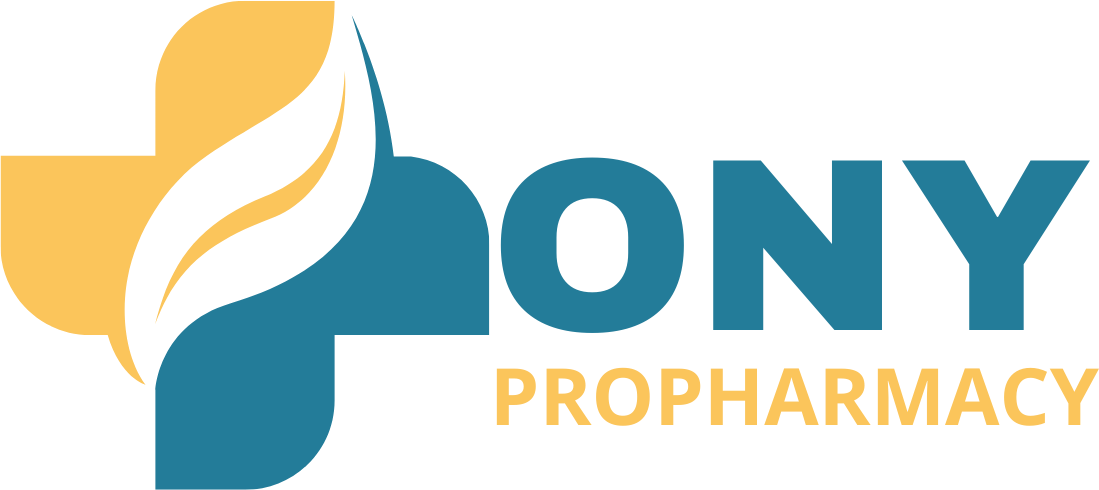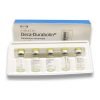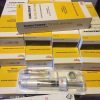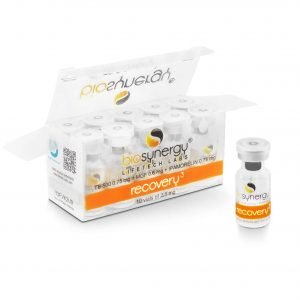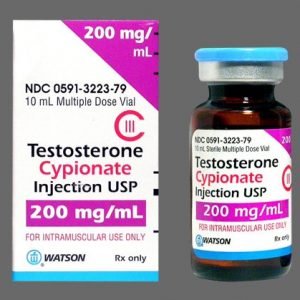NORDITROPIN SIMPLEXX 15 mg/1,5 ml
NORDITROPIN SIMPLEXX ; Pharmacotherapeutic group: somatropin and somatropin agonists – ATC code: H01AC01
NORDITROPIN SIMPLEXX contains biosynthetic human growth hormone called somatropin which is identical to the growth hormone produced naturally by the human body. Children need growth hormone to help them grow, but adults also need it for their overall health.
In children, Norditropin NordiFlex is used to treat growth disorders:
· Linked to the absence or very low production of growth hormone (growth hormone deficiency),
· Related to Turner’s syndrome (a genetic problem that can affect growth),
· Linked to decreased kidney function,
Once their growth is complete, the secretory capacity for growth hormone should be reassessed in patients with acquired somatotropic deficit in childhood. No test is required in patients with more than three pituitary hormonal deficiencies, in patients with severe somatotropic deficiency due to a defined genetic cause, due to structural hypothalamic-pituitary abnormalities, due to tumors of the central nervous system or due to high-dose intra-cranial irradiation, or in patients with somatotropic deficit secondary to pathology or hypothalamic-pituitary disease, if the IGF-I dosage is <-2 DS at least four weeks after discontinuation of growth hormone therapy.
In all other patients, an IGF-I assay and a dynamic stimulation test are required.
Somatotropic deficit acquired in adulthood:
Significant somatotropic deficit in the context of known hypothalamic-pituitary pathology, intracranial irradiation or traumatic brain injury. The somatotropic deficit must be associated with another deficit axis, other than prolactin. The somatotropic deficit must be demonstrated during a dynamic test after the introduction of adequate hormone replacement for any other hormone deficit.
In adults, insulin hypoglycemia is the dynamic test of choice. When insulin hypoglycemia is contraindicated, alternative dynamic tests should be used. The arginine-GHRH combination is recommended. The arginine or glucagon test can also be considered; however, the diagnostic value of these tests is less well established than that of the insulin hypoglycemia test.
In adults, NORDITROPIN SIMPLEXX is used as a growth hormone replacement
In adults, NORDITROPIN SIMPLEXX is used to replace growth hormone if its production has been reduced since childhood or if it stopped in adulthood due to a tumor, treatment of a tumor or a condition that affects the gland that produces growth hormone. If you were treated for growth hormone deficiency in childhood, the persistence of this deficit will be reassessed after growth is complete. If growth hormone deficiency is confirmed, you will need to continue treatment.
Dosage :
The dosage must be adapted to each patient and must always be adjusted according to the clinical and biological results of the treatment.
Generally recommended dosages:
Turner’s syndrome
45-67 m g / kg / day or 1.3-2.0 mg / m2 / day
Chronic renal failure
50 m g / kg / day or 1.4 mg / m2 / day (see section Warnings and precautions for use)
A dose of 0.035 mg / kg / day is usually recommended until the final size is reached (see section Pharmacodynamic properties). Treatment should be stopped after the first year of treatment if the growth rate is less than + 1 DS.
Treatment should be stopped if the growth rate is <2 cm / year and, if confirmation is required, either bone age> 14 years (for girls) or> 16 years (for boys), corresponding to the welding of the epiphyses.
Adults:
Growth hormone deficiency in adults
The dosage should be adjusted according to the needs of each patient.
In patients with acquired somatotropic deficiency in childhood, the recommended dose to re-initiate treatment is 0.2 to 0.5 mg / day. The dose will then have to be adjusted according to the IGF-I concentrations.
In patients with acquired somatotropic deficit in adulthood, it is recommended to start treatment at a low dose: 0.1-0.3 mg / day. It is recommended to increase the dosage gradually at monthly intervals depending on clinical results and side effects. Determining the IGF-I level may guide the dosage adjustment. Women may need higher doses than men, as men have shown increased sensitivity to IGF-I over time. This means that there is a risk of underdosing in women, especially those on oral estrogen replacement therapy, and of overdose in men.
The required doses decrease with age. The maintenance dose varies considerably from patient to patient, but rarely exceeds 1.0 mg / day.
In general, it is recommended to administer the drug subcutaneously in the evening.
It is necessary to vary the injection site to prevent the appearance of lipoatrophies.
Side effects :
-Nerve, muscle, golden seal
–Swelling due to fluid in the body tissues (edema)
-Carpal tunnel syndrome
-Neute and tingling of the skin
-Hypercholestérolémie
HGH can also increase the risk of diabetes and contribute to the growth of cancerous tumors.
